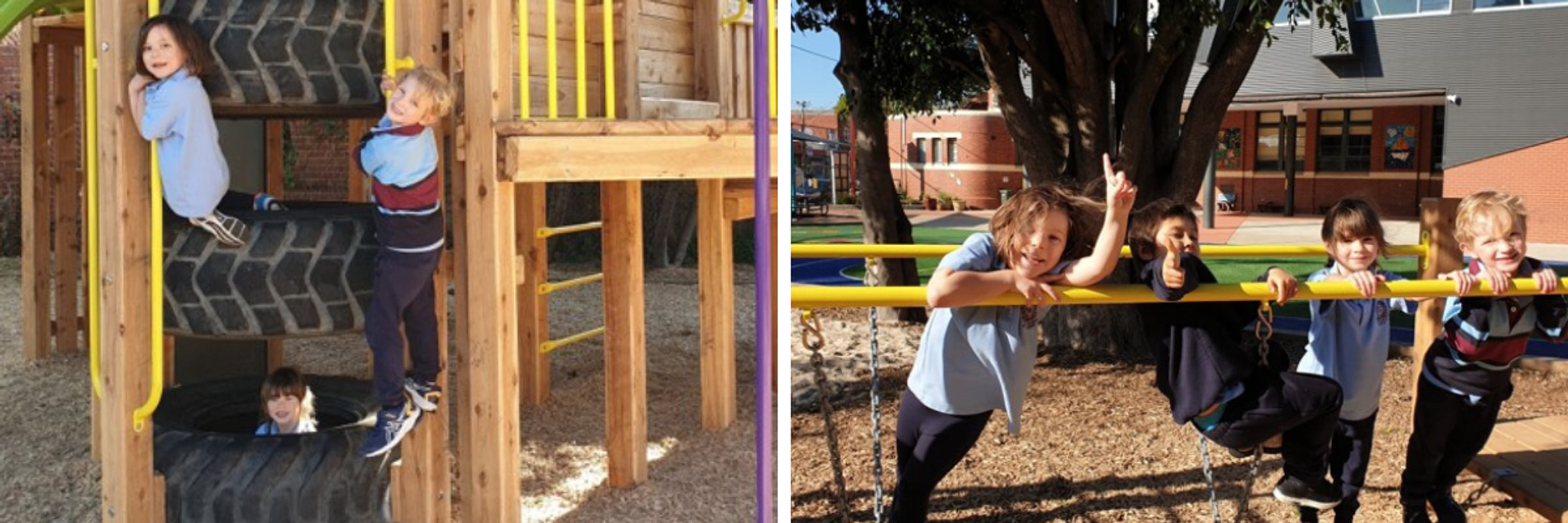PYP Around the School

What is the difference between a PYP school and an inquiry based-school?
There are many schools across Australia which are inquiry-based and that engage in inquiry units. I, therefore, get many people ask me - what is the difference between a PYP school and an inquiry-based school?
Unfortunately, there is not a short, simple answer to this question. In essence, the teaching at an inquiry-based school may look very similar/the same to that of a PYP school during 'unit of inquiry' time, especially to a visitor who is just into the classroom for a short period of time. At a good PYP school and at a good inquiry-based school, you would expect to see teachers provoking curiosity through artifacts, videos, books, guest speakers, excursions, and interactive stations. You would expect students to be working collaboratively in groups, talking about the learning and recording their wonderings and findings.
Given that the actual 'teaching' may not look that different, I would like to propose that these are some of the key differences between an inquiry-based school and a PYP school:
- At a PYP school, you would expect to see the same type of teaching (mentioned above) across subject areas - English, Mathematics, Art, PE, etc. We try to provoke curiosity and follow student needs and interests in all subject areas - we listen to, observe and know our students so well and therefore respond to them. We start with the child.
- At a PYP school, the unit of inquiry time is not just 3 hours a week (or however long different inquiry-based schools decide to dedicate to the unit of inquiry time). The unit of inquiry permeates many subject areas as appropriate. This leads to the students understanding the unit of inquiry on a much deeper level and having a greater appreciation for how subjects are relevant in the ‘real world’. For example, our current 5/6s are exploring the central idea 'People gain insight into the diversity of migration through storytelling.' They are therefore focused on the following;
-In Maths they are working on percentages and data so they can look at migration trends and figures.
-In English, they are exploring biographies where people tell their stories. They are also studying picture storybooks that explore migration and the techniques the author's use to create emotion.
-In spelling, they are looking at word etymology - where words come from and how they came to be in the English language - e.g. we adopted the word karaoke from Japan. They have also looked at the root word 'migr' which of course forms a whole family of words related to migration.
-In Mandarin, they are exploring Chinese migration to Australia (especially around the Gold Rush) and also how to converse about where your family is from/your background.
- In RE, they are looking at migration in the Bible and the way this is presented.
-In Social and Emotional learning, they are looking at dealing with change/belonging
-In Art, the students are exploring the ways they can represent what it means to be Australian, especially in light of our multicultural society.
- At a PYP school, there is a focus on the child as a whole. We constantly refer to and engage with the IB learner profile attributes which encourage international-mindedness and dispositions we need to function in our world. Students use this language too and reflect on their own development.
- At a PYP school, all of our central ideas (units of inquiry) need to meet certain standards. For example, they must not be value-laden, they must be globally significant, able to be studied at a range of levels so that all students are challenged and must be engaging and relevant. This means they often lead to richer learning.
- At PYP schools, our units of inquiry are carefully sequenced from Prep to Year 6 to avoid overlap and are organised in a certain fashion according to the transdisciplinary themes.
- At a PYP school, students are explicitly taught skills for life-long learning that will help them beyond primary school. They are taught social skills, research skills, thinking skills, self-management skills, and communication skills. Students have the opportunity to set goals around skills they need to work on and reflect on their growth.
- At PYP schools, there is a big focus on action. Students are encouraged to take action as a result of their learning, within and outside school. Students are viewed as capable and acknowledged for the ways they are working to make our world a better place.
- At PYP schools, we are 'audited' by the IB. This means we are accountable to high standards of teaching and learning. Inquiry-based schools are not accountable in this same way.
- At PYP schools, everyone is speaking the same language about teaching and learning and therefore there is more continuity of learning and it is clearer for the students when moving from one year level to the next.
- At PYP schools, our units of inquiry allow for global perspectives and it is explicit in our documentation that we organise experiences that help students develop well-rounded ideas/views on a range of issues.
- At PYP schools, teachers have the opportunity/are expected to engage in professional learning that is recognised and highly regarded on a global scale.
- At PYP schools, teachers plan together so we can utilise each others' strengths, develop the best learning experiences for our students and personalise learning.
